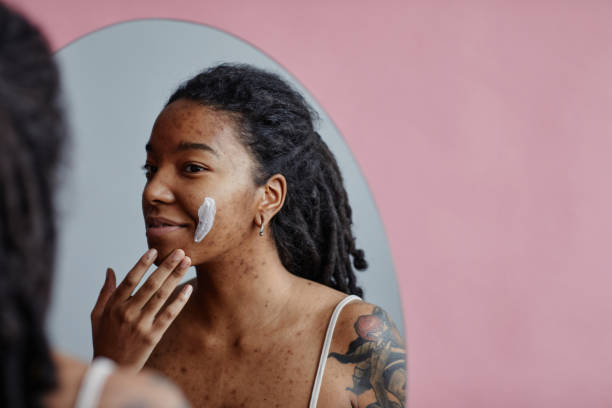When it comes to treating acne, several acids are commonly used due to their effectiveness. The best acid for acne can depend on your skin type and the severity of your acne, but here are some of the most popular and effective options:
- Salicylic Acid:
- Function: This beta hydroxy acid (BHA) is oil-soluble, which means it can penetrate deeply into the pores to remove excess oil and dead skin cells.
- Best for: Mild to moderate acne, including blackheads and whiteheads.
- Additional benefits: Anti-inflammatory properties that can reduce redness and swelling.
- Benzoyl Peroxide:
- Function: An antibacterial agent that kills acne-causing bacteria and helps to prevent clogged pores.
- Best for: Mild to moderate acne, especially inflammatory acne.
- Additional benefits: Can reduce the number and severity of acne pimples and promote quick healing of pimples.
- Glycolic Acid:
- Function: An alpha hydroxy acid (AHA) that exfoliates the surface of the skin, removing dead skin cells and promoting cell turnover.
- Best for: Mild acne and those with dull skin who need a brightening boost.
- Additional benefits: Can improve skin texture and reduce the appearance of acne scars over time.
- Lactic Acid:
- Function: Another AHA that is milder than glycolic acid, it exfoliates the skin and helps to keep pores clear.
- Best for: Sensitive skin and those with mild acne.
- Additional benefits: Hydrating properties that can improve skin moisture levels.
- Azelaic Acid:
- Function: Has antibacterial and anti-inflammatory properties and helps to clear pores of bacteria that may be causing irritation or breakouts.
- Best for: Mild to moderate acne, particularly for people with sensitive skin or rosacea.
- Additional benefits: Can help to lighten dark spots and improve skin tone.
- Retinoic Acid (Tretinoin):
- Function: A derivative of vitamin A that promotes cell turnover and prevents clogged pores.
- Best for: Moderate to severe acne.
- Additional benefits: Can reduce the appearance of fine lines and wrinkles and improve skin texture.
It’s important to note that introducing acids into your skincare routine should be done gradually to avoid irritation. It’s also advisable to consult with a dermatologist to determine the best treatment for your specific skin type and acne condition.

Can I use salicylic acid every day?
Yes, you can use salicylic acid every day, but it depends on your skin type and how it reacts to the treatment. Here are some tips on using salicylic acid safely and effectively:
- Start Slowly:
- If you are new to salicylic acid, begin by using it every other day to see how your skin reacts. This helps to minimize the risk of irritation or dryness.
- Choose the Right Concentration:
- Over-the-counter salicylic acid products typically range from 0.5% to 2%. Start with a lower concentration if you have sensitive skin and gradually increase it if your skin tolerates it well.
- Moisturize:
- Salicylic acid can be drying, so it’s important to follow up with a good moisturizer to keep your skin hydrated.
- Use Sunscreen:
- Salicylic acid can make your skin more sensitive to the sun, so it’s crucial to apply sunscreen daily to protect your skin from UV damage.
- Monitor Your Skin:
- Pay attention to how your skin responds. If you notice excessive dryness, redness, or irritation, reduce the frequency of use or switch to a lower concentration.
- Combination with Other Products:
- Be cautious when combining salicylic acid with other active ingredients like retinoids or benzoyl peroxide, as this can increase the risk of irritation. It’s best to consult with a dermatologist before combining treatments.
If you experience any persistent irritation or other adverse effects, it’s advisable to consult with a dermatologist for personalized advice.
